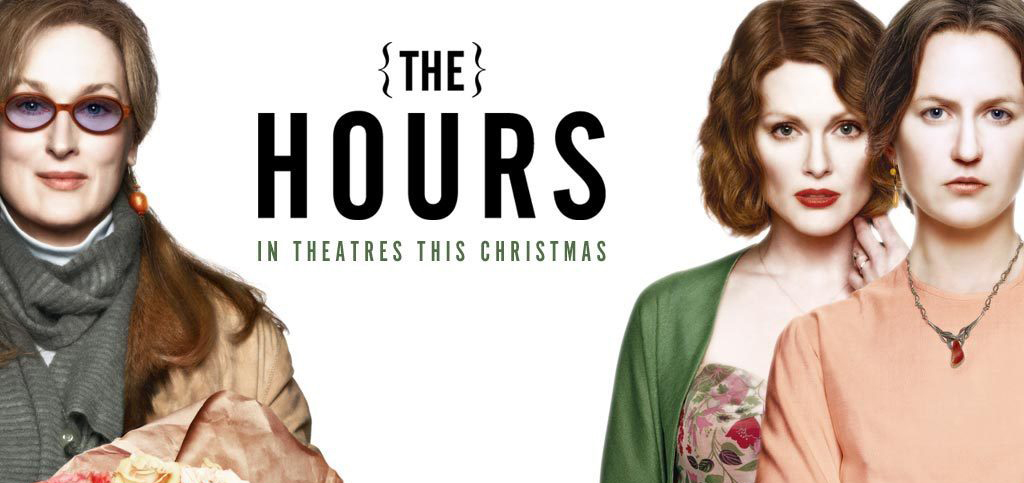The Hours follows a day in the life of three women in three time periods. The first is Virginia Woolfe (Nicole Kidman), who is struggling with her mental health while confined to the country. She is working on writing Mrs. Dalloway The second story focuses on Laura (Julianne Moore), a pregnant housewife in the 1950’s. Laura is considering suicide on the day of her husband’s birthday. The third character is Clarissa (Meryl Streep) who is planning a party for her friend and ex-partner Richard. Richard is a writer who has just received a lifetime achievement award for writing. He is also dying of AIDS. Themes such as suicide, family and Woolfe’s novel Mrs. Dalloway connect these three stories.

It is actually surprising that men wrote and directed this movie given how much focus there is on female experience. I’m pleased to say that The Hours showed both respect and understanding for its complex female characters. That’s admittedly a deeply low bar, but one that I see a lot of films fail to cross. Moreover, there is a focus in The Hours on female interaction and the intensity and intimacy of female/female relationships which is moving and extraordinarily well done. The Hours shows that you don’t necessarily have to belong to the same community as your characters, you just have to be really good at creating characters and treating them with empathy.
Queerness is not the focus of The Hours so much as themes of mental health and female experience. But it is certainly present in the film. Clarissa lives with her long-term partner, Sally though their relationship plays second fiddle to her relationship with Richard. Laura has a close relationship with a neighbour which leads to a passionate kiss. However, neither woman is prepared to explore the consequences and potential of this. Woolfe’s story doesn’t have any overt queerness. She does passionately kiss her sister on the mouth, but we’re not going to read into that. Woolfe was of course, historically queer. There is an argument to be made that they erased this part of her identity. But given that the small timeframe the film covers, I think it’s valid that it just never came up. Still, I would have loved a passing reference to her having female lovers.

As much as The Hours has good writing and direction, what really makes the film a winner is the cast. This film assembles an incredibly amount of talented people. There are of course, the three leads played by Kidman who won an Oscar for this role and other perennial nominees, Streep and Moore. But the supporting cast too is full of exceedingly talented actors like Ed Harris, Margo Martindale, Allison Janney and Toni Collette.
Of all these excellent actors, Julianne Moore was the standout for me. Over the course of her career, she’s made an absolute art form of playing an unhappy and emotionally complex wife. Moore inflects such a quiet sadness in her scenes with such small gestures and intonations. It’s the best performance in a film full of great performances.

The Hours is a great and heartbreaking movie. Full of great dialogue, great performances and difficult themes, it is an emotional, sometimes heartbreaking film. But as much as the subject matter itself may be bleak, the film offers a sense of beauty even in difficulty. I totally get why this film was a major Oscar contender that year and I’m pleased that a film so focused on the female perspective got such major awards recognition.
Overall rating: 9.0/10
Other WLW films in similar genres
Multiple Oscar nominations
Interconnected stories


Be First to Comment